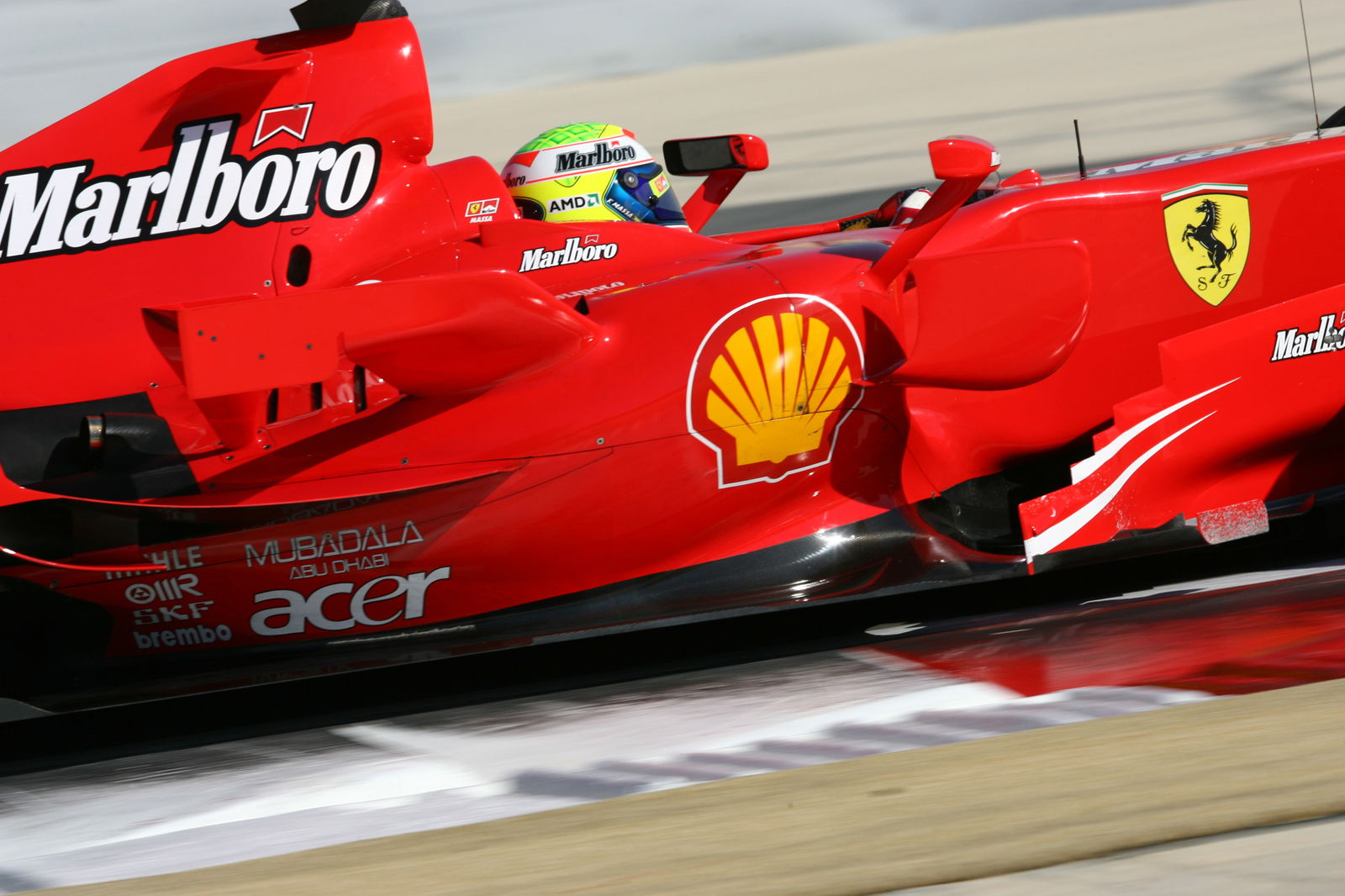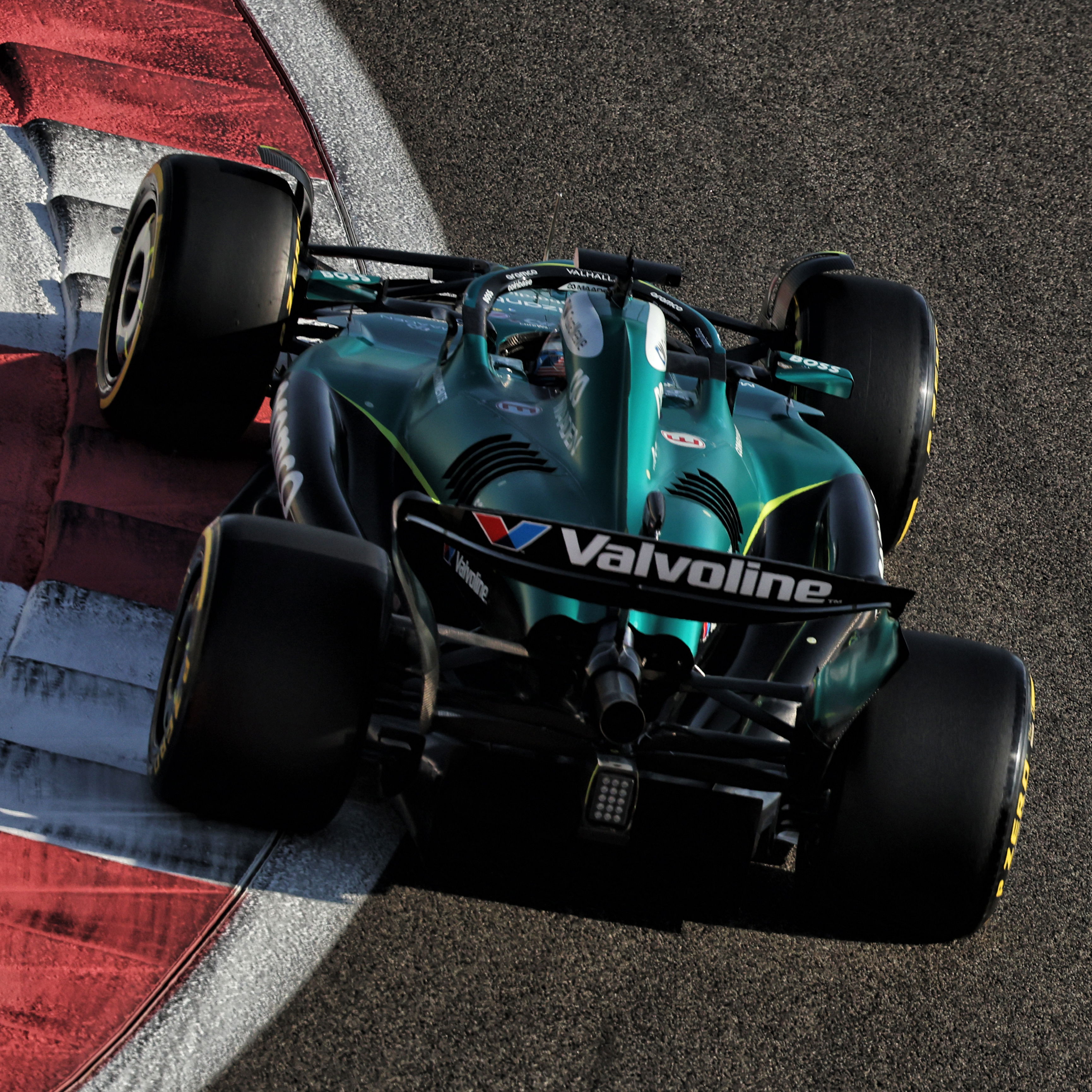Q&A: Nick Fry - EXCLUSIVE.
by Russell Atkins
TO HEAR THE INTERVIEW IN FULL: CLICK HERE
Honda's 'Earth Dream' start to the 2007 Formula 1 campaign rapidly turned into a nightmare, as the Japanese outfit's RA107 quickly proved to be a long way off the front-running pace the team had anticipated given the podium-challenging form it had displayed towards the end of 2006.
by Russell Atkins
TO HEAR THE INTERVIEW IN FULL: CLICK HERE
Honda's 'Earth Dream' start to the 2007 Formula 1 campaign rapidly turned into a nightmare, as the Japanese outfit's RA107 quickly proved to be a long way off the front-running pace the team had anticipated given the podium-challenging form it had displayed towards the end of 2006.
In response to this, there have been a number of sweeping changes implemented ahead of the forthcoming season, including the appointment of former Ferrari technical director and renowned tactical genius Ross Brawn as team principal. In assuming that role, Brawn took over from Nick Fry, who has now taken on the position of Honda F1 CEO. The 51-year-old took time out to speak to Crash.net Radio about his reflections on 2007 and hopes and ambitions for 2008...
Q:
Nick, first of all how excited are you ahead of the 2008 Formula 1 season?
Nick Fry:
I can't wait to get back to it. There's a genuine sense of sensible confidence here, which is based on facts, a lot of new people, obviously Ross being here and a completely different design of car. It's not that we're under false illusions; it's going to be a long slog involving a lot of hard work. No one's expecting to go to Melbourne and be at the front of the grid, but we know this year we can do a lot better than we did last year.
Q:
Talking of last year, the RA107 was obviously nowhere near the team's expectations. At what point did you realise that in the build-up to the season?
NF:
I think really I would be honest and say I had a poor feeling prior to Christmas the previous year. Motor racing is not the coming of the tooth fairy - we're all a bit too old for that. If a car looks right and you get a good feeling about its development and the numbers that are coming out of the wind tunnel, and then it starts going well in testing, that gives you confidence. By the time we got to February of last year the writing was on the wall. It doesn't deter you from working hard and being optimistic, but it was clearly going to be a difficult year.
Q:
How tough was it to keep everyone in the team motivated throughout the season, given that the car was so far off the pace?
NF:
Obviously there were difficulties, because Formula 1 teams in many cases act like vultures - as soon as someone is in trouble the rest come flying around and try to pick off as many bones as they can. That means you're under constant attack from people saying 'why are you with that bunch of idiots? You should be with us'.
People remain motivated, though, if they can see light at the end of the tunnel, even if it's quite a long tunnel. We've never lost sight of that light; we've always had enough impetus to keep us going, and that comes step-by-step. We managed to get some very good aerodynamicists, in Lo?c [Bigois] and John Owen and others - that was a fillip and a boost for the team. We then managed to get some very good mechanical people too; J?rg Zander said he'd come back. The icing on the cake frankly is Ross, and he was a huge plus for the team just because he's won world championships before, he knows how to do it and he's got a lot of experience. That really sealed the deal as it were.
Q:
What has Ross actually brought to Honda since he arrived? Has it changed the way the team works?
NF:
It hasn't in one way, because he is working with the same people in exactly the same structure and in the same way as it was organised before. He's not changed any of that, but the big difference is confidence, so on the one hand nothing at all has changed, but on the other hand everything has.
People realise Ross has got a very high benchmark; he knows what the best is and he can evaluate us against that. That gives people confidence that when they're doing the right thing they should just continue on that path, and when people are straying from the path it gives them confidence that someone is going to say 'hang on a minute, go back in a different direction'.
Q:
How has his appointment changed your role within the team, and your responsibilities?
NF:
It's made my life a lot easier in lots of ways! Last year unfortunately I ended up doing a lot of things that possibly I wasn't qualified to do, because there were holes in the organisation which needed someone to do something. Probably I had many hats on, which meant that I was running around in every direction.
Ross being in charge of the technical areas is a huge benefit to me personally, not because I've divorced myself from those - far from it - but because there's someone there taking day-to-day care of them now. That has allowed me to work much more on the commercial side, which again went lacking last year because I had to spend a lot of time on the technical side. I'm very much enjoying myself, and going home with a sense of achievement as opposed to going home with a sense of frustration that no matter how hard we tried, progress was slow.
Q:
On the subject of the commercial side, the 'My Earth Dream' theme from last year has continued in 2008 with 'Earth Dreams'. Tell us a little more about that...
NF:
The idea is very much an evolution. Although it seems only a short time ago, the world view of climate change has obviously changed a lot in a year. When we started the 'My Earth Dream' idea in January of '07, there were still question marks about whether climate change was even a problem, with some people denying it. Since we started that campaign - which was very much an awareness campaign - I'm not sure there are many people in the world who a) aren't aware and b) don't accept that they need to do something, individually as well as collectively.
This year we've decided to expand to what we've called 'Earth Dreams', which is the same idea but about changing awareness into action. What we're trying to do is to pick particular projects around the world to be partners to, and the money from people who went onto our website last year can be donated to them. We've donated $700,000 in the last two weeks, and I've got another half a million in the bank account waiting to go for which we're currently selecting the next groups.
It's real projects - marine stewardship, forestry stewardship, biodiversity, landmine clearance in Cambodia, urban regeneration in S?o Paolo... We've broadened the remit from just CO2 and global warming to one where we're supporting people even on a small scale who are attempting to improve their environments.
Q:
So if that's an evolution, out on the track the RA108 is more of a revolution compared to the RA107 isn't it? What are the major differences between the two cars?
NF:
The differences are massive. Last year's car unfortunately was the culmination of a four-year development process which had gone past its sell-by date. It had worked very well for us for a few years, but we just pushed it too hard. Although the car generated significant amounts of downforce, it did so in a very unstable way.
The first step was to re-design and build a car which was dedicated to the aerodynamics. The RA108 is a car that has very much been designed in the wind tunnel, without too much compromise elsewhere into the bargain. It's a starting point; this is a completely new car philosophy for us. It generates its aerodynamics in a very different way and there will be a learning curve.
After the very basic shakedown we did at Valencia - where we didn't really worry about the performance at all; it was more about reliability - now we'll start working on the performance side. I don't expect us to bounce from the back to the front, but what I do expect from the team is evolution. You won't see the Melbourne-specification car until literally the test before Melbourne; we've had to give maximum time to the aero and design teams, and that means we are very late.
Q:
In terms of learning, obviously one of the most important things for Honda is having three experienced drivers on-board in Jenson Button, Rubens Barrichello and Alex Wurz. How much of a boost and benefit is that for the team this year?
NF:
Huge; Alex is tremendously popular - he's worked with a number of guys here in the past, whether it was at Benetton or elsewhere, so they know him well. He's an incredibly smart guy, he's got a lot of character and he is very funny. He's very dedicated too, and all his teams in the past have won the world championship. He's very well-respected, and he really supplements Jenson and Rubens extremely well. They all get on very well.
Q:
As you've said, everyone in the team this year clearly wants to move forward and improve; do you have any more concrete objectives than that, in terms of points or podiums?
NF:
I would like to get to a situation during the course of this year which is akin to where we were at the end of 2006. In the second half of that season I could get on a plane on a Thursday with a good feeling that we were going to come home with some points, and if we did well we would come home with a podium position. I'm not saying I expect to see that at the first race, but certainly I expect to evolve to that position during the course of the year.
TO HEAR THE INTERVIEW IN FULL: CLICK HERE






